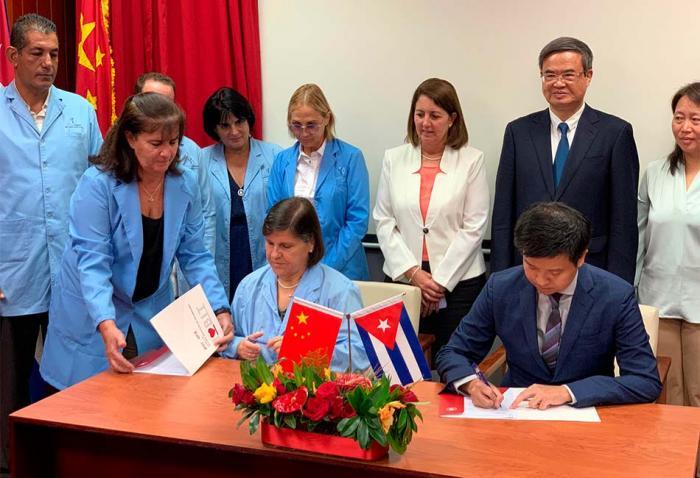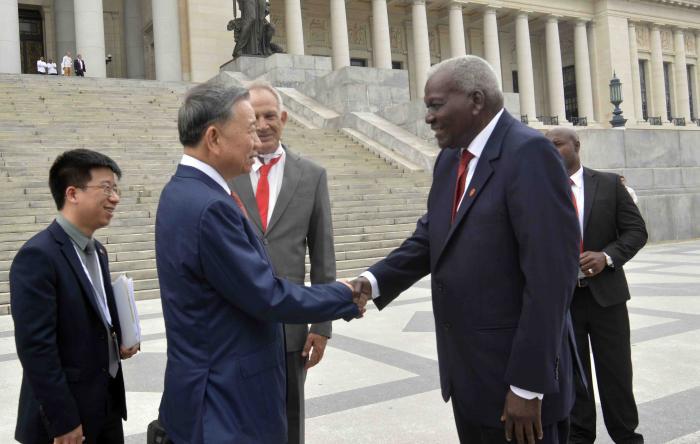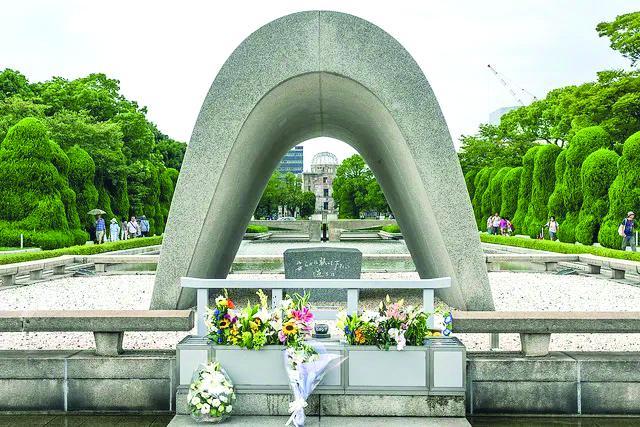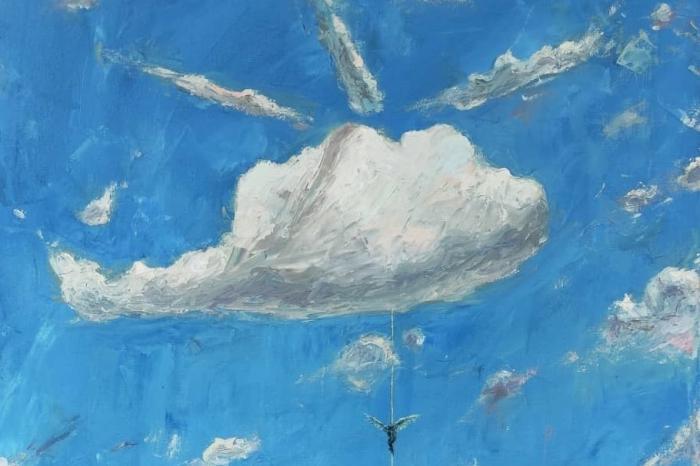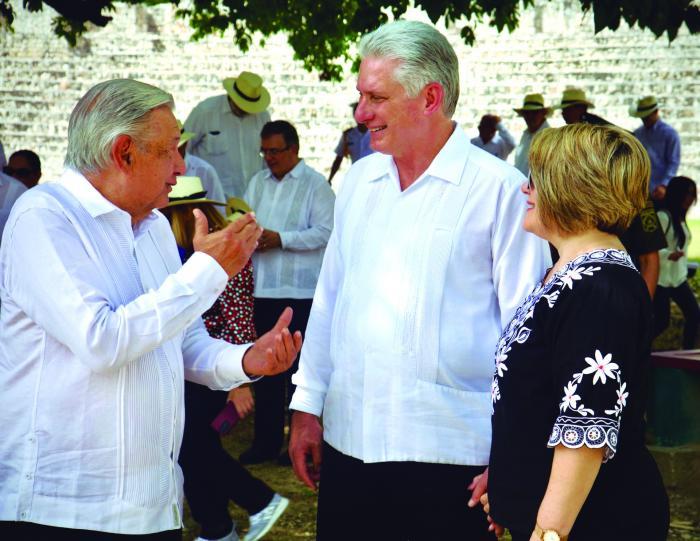

Mexico is the brother that has always been there for Cuba. And vice versa. Photo: Estudios Revolución
MEXICO CITY.— "We will not tolerate anything against Mexico! We will feel it as our own, and we will know how to be faithful to the friendship forged by centuries of history and beautiful common principles!" Thus, more than diaphanous, was the way in which Commander-in-Chief Fidel Castro Ruz referred to the special relationship that unites the two peoples.That declaration of brotherhood - in which Fidel reminded everyone that for Cuba that nation is not just another destination, it is not a strange place, but rather an extended homeland - was heard at a Cuban-Mexican Friendship Act held on August 2, 1980. And that passage was recalled by the President of the Republic of Cuba, Miguel Díaz-Canel Bermúdez, when he took part -in September 2021- in the civic-military parade on the occasion of the celebrations for the anniversary of the Grito de Dolores.
Photo: Estudios Revolución
On Mexican soil, the dignitary arrived from the Caribbean island to deliver a speech that portrayed the exceptional history between the two countries. His words began by affirming -also very clearly- that "among all the brothers that Our America has given us, Mexico counts, for many reasons, as one of the most dear to Cuba."In a comprehensive enumeration, Díaz-Canel mentioned the poetry of Cuban José María Heredia: "how beautiful is the land inhabited by the brave Aztecs"; the unique ties between José Martí and the Mexican land; the suffering born of the Spanish conquest; the desire for independence; "the notable Cubans who left their blood and their names in the history of Mexico"; and that the sister nation was the first to "recognize our armed struggle, and to open its ports to ships with the flag of the lone star."Regarding this last episode, President Díaz-Canel stated in his speech that such recognition "was approved by the Congress, was sentenced by Juárez, and was thanked by Carlos Manuel de Céspedes, the President of the Republic in Arms, in a memorable letter to his Mexican counterpart."The Head of State recalled that "a select group of Mexican soldiers arrived in Cuba to contribute to the formation and training of the nascent Liberating Army." Céspedes had written to the "Meritorious of the Americas": "Some Mexican gentlemen have come here and have shed their generous blood on our soil and for our cause, and the whole country has shown its gratitude for their heroic action."
Photo: Estudios Revolución
There are many facts that have interwoven the history of endearing brotherhood: it is the Mexican friend Manuel Mercado, to whom José Martí dedicates his unfinished letter and extends his anti-imperialist position; it is Julio Antonio Mella falling in the Aztec capital, pierced by a bullet; it is the boys of the Centennial Generation finding shelter and regaining strength to resume the struggle for Cuba; it is the land from which the Granma yacht set sail; and it is the natural and undeniable sympathy that the sons of Mexico feel for the 1959 Revolution."Faithful to its best traditions - recalled Díaz-Canel in his speech - Mexico was the only Latin American country that did not break off relations with revolutionary Cuba when we were expelled from the oas by imperial mandate."And in a very intense route of coincidences and mutual support, in a saga so rich that it does not fit in a handful of lines, this reporter is reminded of the faces of the sons of Mexico, the firefighters and rescuers who came to Matanzas to help extinguish, in the year 2022, the fire at the Supertanker Base; and it may seem natural, but it is a gesture that shines with courage and empathy, the permanent and firm accompaniment of Cuba in its struggle against the imperial blockade, and the aid in medical supplies and food to alleviate the combined effects of that blockade and COVID-19.As a result of the above, in a two-way road, some 3,000 Cuban doctors have arrived in 23 Mexican states in these times; and close to 200 professors from the Caribbean country train future health specialists there, while hundreds of children of the nation of Juárez are trained in Cuba as professionals in that field. This is one example, among many others of brotherhood, that unites the two nations.TRAVEL AND NATURAL PROXIMITYFor the first time in its history, the beloved Mexico will have a woman in its presidency: Claudia Sheinbaum; and the event is motivation for President Díaz-Canel to attend, this October 1st, the inauguration ceremony. The arrival of the Cuban leader is part of the natural closeness that marks both countries.
Photo: Estudios Revolución
In these years as a dignitary, Díaz-Canel has visited that nation on more than one occasion: to participate, in November 2018, in the inauguration of President Andrés Manuel López Obrador; for the first official visit, in October 2019; to attend as guest of honor at the civic-military parade for Mexican Independence Day, and to participate in the 6th Summit of Heads of State and Government of Celac, in September 2021; and to arrive to the state of Campeche, in February 2023, where the Cuban president received the Mexican Order of the Aztec Eagle, in degree of Collar, delivered by AMLO.In October 2023, the First Secretary of the Central Committee of the Communist Party of Cuba arrived in Mexico to participate in the "Palenque Meeting: for a fraternal neighborhood with well-being," a meeting convened by Mexican President Andrés Manuel López Obrador, with the purpose of addressing the immigration issue.President Andrés Manuel has concluded his term of office, which was distinguished by a marked humanist spirit, and whose compass north was marked -with results- by taking millions of human beings out of extreme vulnerability. Now the responsibility as president belongs to Claudia, a scientist born in 1962, who, when she had signs of her triumph in the elections, expressed in her first speech: "I do not arrive alone, we all arrive, with our heroines who gave us our homeland, with our ancestors, our mothers, our daughters and our granddaughters".For this particular moment, and for all the history lived, Mexico continues to be very special for the largest of the Antilles. This is what in 2018, from the Palace of the Revolution of the Republic of Cuba, President Díaz-Canel reasoned from gratitude, from the most heartfelt memory, in an interview granted to Patricia Villegas, president of Telesur: "Mexico is a very important country. The Centennial Generation found a place in Mexico to prepare for the war in Cuba. Mexico maintained relations with Cuba when many broke off."


